Humanity, Connection at Heart of ShackletonThomas
May 13, 2022
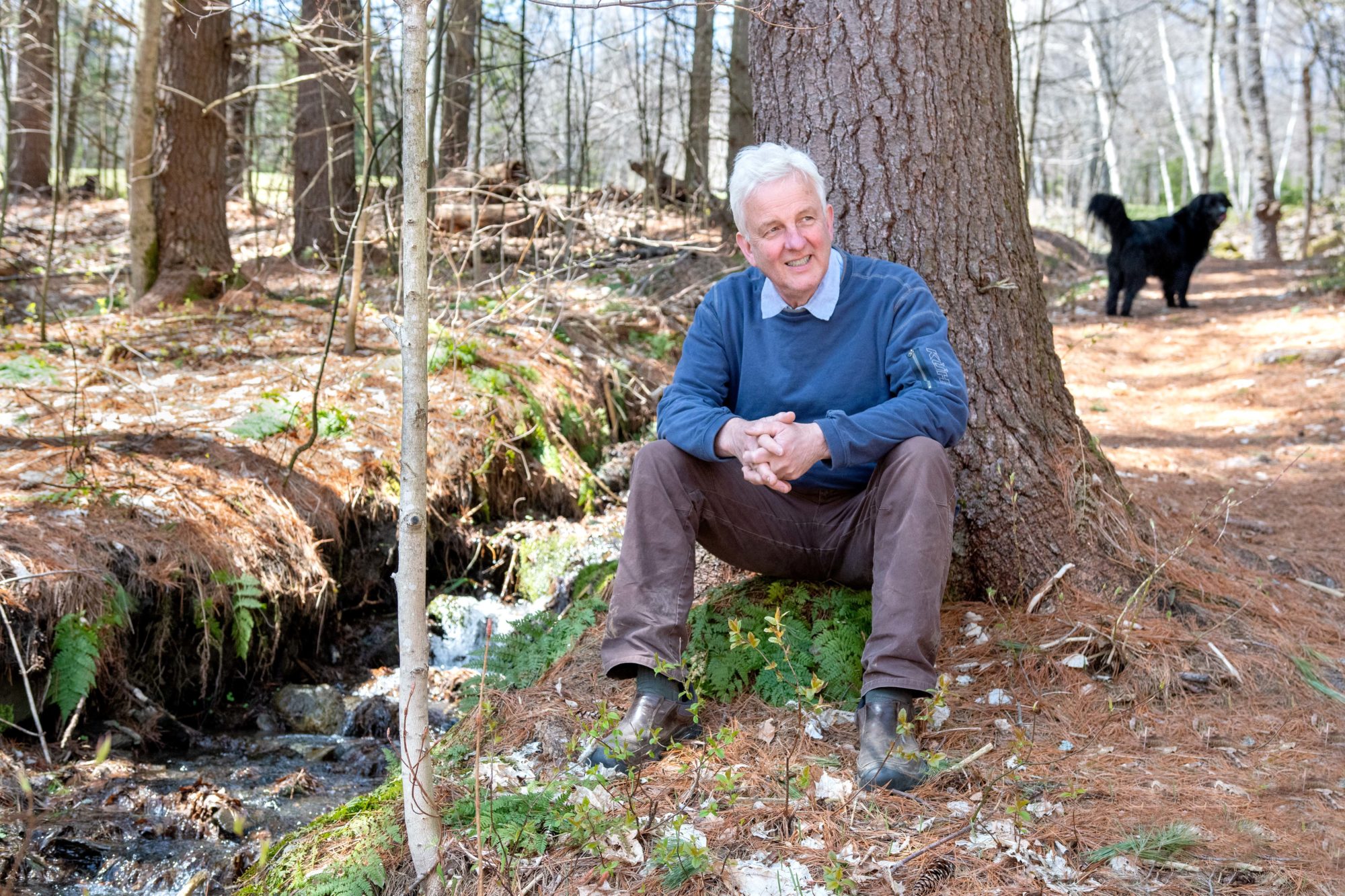
By Christine McGowan, Vermont Forest Industry Network
Charlie Shackleton has a pretty interesting story to tell. The renowned Vermont furniture maker does not, however, start his story with his connection to Sir Ernest Shackleton of Endurance fame, or with meeting his wife and business partner, Miranda Thomas, in art school. Rather, he begins in the woodshop of a private secondary school in Ireland.
“I went to some of the best private schools in Ireland and England thanks to my grandmother,” says Shackleton. “Most of those schools were gearing kids toward academia or successful careers in business, but I kept finding myself in the woodshop. I was not an academic person at all. I loved making and creating things.”
Upon graduation from secondary school—the equivalent of high school in the U.S.—Shackleton learned that his parents were unable to afford University. Unsure of what he would study anyway, he took a job working with his father in a flour milling factory. “I had a bit of a crisis,” he said. “I didn’t see a clear path forward.”
It was a car accident at age 18 that jolted Shackleton toward his future. “I could have died,” he recalled. “I realized that I had better be careful about how I wanted to live my life.”
Shackleton was intrigued by the idea that there were other kids like himself who were “perfectly intelligent but didn’t necessarily operate at their best in traditional academic settings.” He moved to England and took a job teaching craft workshops to refugees.
“There was one thing I was focused on,” he said. “Human beings’ hands are one of their best attributes. We are makers, fundamentally, and not everyone will thrive typing in a cubicle all day.”
It was on a field trip with the refugee group to a nearby art school that Shackleton found his next step. “I took one look and decided this was where I needed to be,” he said. “I had no credentials, but I talked my way in.”
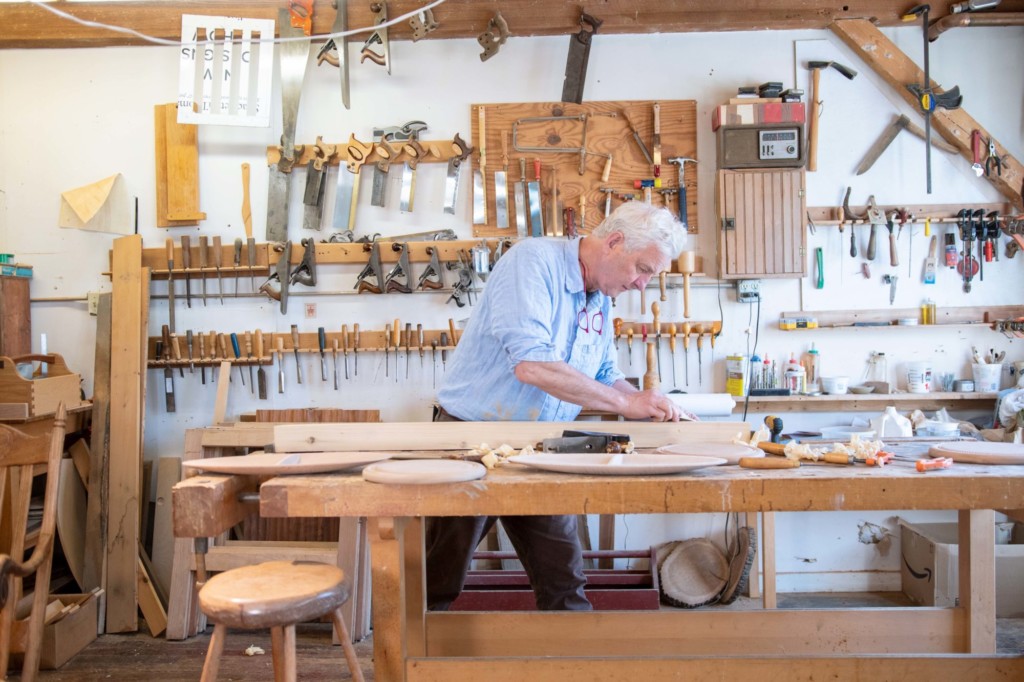
Charlie Shackleton hand planes a piece of wood in his workshop at ShackletonThomas in Bridgewater. Charlie and his wife, potter Miranda Thomas, established ShackletonThomas in 1987. Photo by Erica Houskeeper.
The making of a maker.
Enrolled in school at the West Surrey College of Art & Design, he immersed himself into the program, studying glass, wood, ceramics, and metal. Although he loved working with wood, he calculated that glass blowing—a highly skilled occupation—would have better job security. “I figured that if I could learn to blow glass, I’d have a job for the rest of my life because no one else was doing it,” he said.
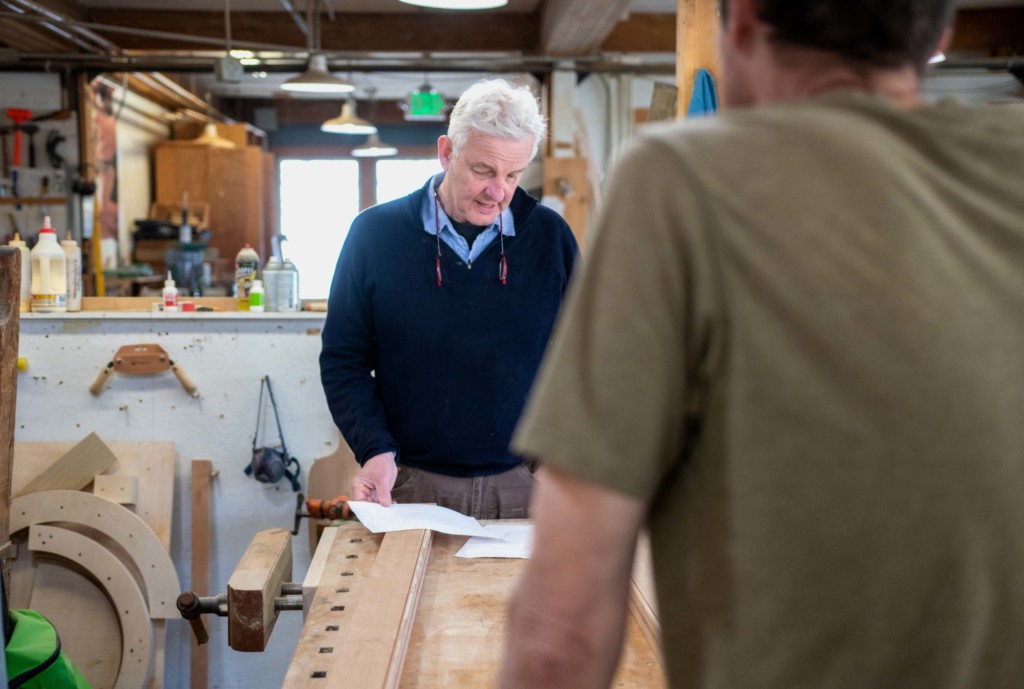
Charlie Shackleton consults with an employee at ShackletonThomas in Bridgewater. Photo by Erica Houskeeper.
No one, that is, except for Simon Pearce. A few months before graduation, Shackleton met Pearce, an established glass blower in Ireland who was getting ready to move to America. Over dinner, Pearce offered Shackleton a job. “I said, that’s great,” recalled Shackleton. “It’s February now and I’ll be finished in June and could start then. Simon said, ‘Well, you’ll either start Monday or not at all.’ I started Monday.”
Thus began a lifelong friendship and 15 year partnership between Shackleton and Pearce. After five years of blowing glass in Quechee, Vermont, Shackleton found himself spending more and more time making furniture. Again, an unexpected death altered his path. “I met this wonderful guy whose dream was to be a woodworker when he retired,” said Shackleton. “He retired at 65 and died a year later. It made me realize that I better start living the life I want to live now, in the middle years, when I still have the energy.”
Working from a shop in his basement, Shackleton began making furniture. “My first piece was a bed and Simon bought it,” he said. “He was my first customer.” For 15 years, Shackleton’s furniture was sold in the Simon Pearce showroom, helping him to build a business and a brand. It wasn’t until 1987—the year his daughter was born—that Shackleton and his wife Miranda, a potter, decided to go out on their own. “It was terrifying,” he said. “At that time, I had 27 furniture makers working for me. But we are people people. We know how to sell. We know how to connect. So, we lept and ShackletonThomas was born.”
Preserving human, forest connection.
Thirty-three years later, Charlie Shackleton remains passionate about his work. “Our main obsession is preserving hand craft,” he said, while sanding a tray he was making for a class later that day. “Our employees make things one-by-one using hand skills. Not only is it a great profession, but for the customer, the final product feels like a human being made it.”
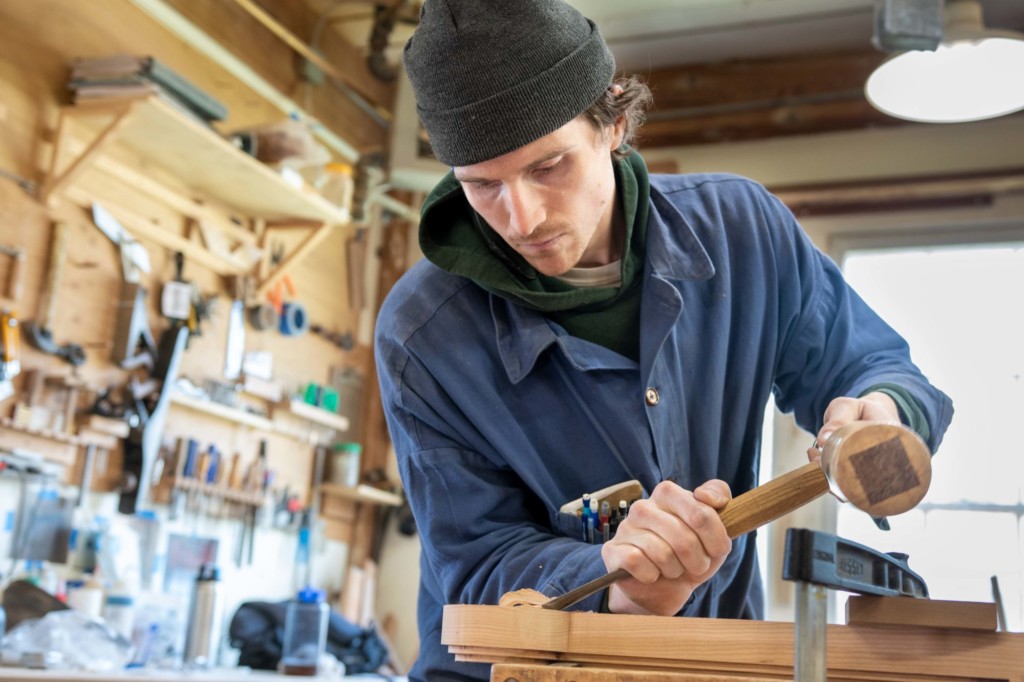
Furniture maker Nick English creates a sleigh armchair at ShackletonThomas in Bridgewater. Photo by Erica Houskeeper.
Shackleton takes that human connection one step further with his Naked Table Project, which invites small groups of people to Vermont to build a table. Made from Vermont’s iconic sugar maple, the experience starts with a forest walk through the land where the maple was harvested.
“To fully understand the process of sustainably making furniture,” said Shackleton, “you must go into the forest. It will change the way you see furniture and your local woods forever.”
As the new president of the Vermont Wood Works Council, Shackleton hopes to bring that message far and wide. “In order to survive in the wood business, you have to be connected to other people, to talk with them about how they are running their business, using their machinery, and employing people. That networking piece and feeling that we are all in this together to survive is really important.”
“Unlike other makers who may be focused solely on the beauty of their craft, my wife and I take a hawk-eye view,” said Shackleton. “It’s a lifestyle choice to be deeply connected to the land, it’s what feeds our soul. Our work and what we do plays into our fundamental beliefs about the sustainability of this planet.”
Everyone has a story.
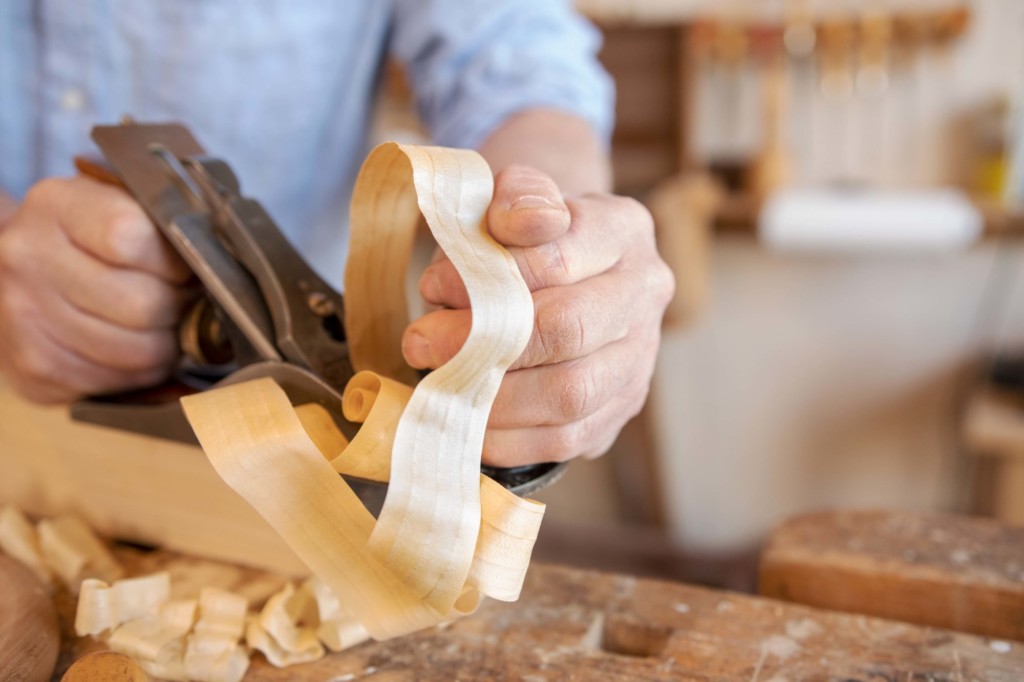
Charlie Shackleton hand planes a piece of wood in his workshop in Bridgewater. Photo by Erica Houskeeper.
Shackleton has one piece of advice for young people interested in forest economy jobs: Do the research.
“Whether you’re buying an ATV or exploring woodworking as a profession, talk to everybody. Find somebody in the wood business—maybe a logger, maybe a furniture maker—and talk to them. Say, ‘I want to be in the wood business. What is your advice? Who do you know?’ That’s what happened to me when I was 18. I took a boat to England and just talked to everyone until I found an answer. Talk to your buddy. Talk to the champion in your field. To this day, when I go out to find logs for the Naked Table project, I talk to the loggers and ask them about their life.”
“Every person has a remarkable story. You need to bask in that particular piece of sunshine and find out about it.”
About the Vermont Forest Products Program at VSJF
Vermont’s forest economy contributes more than $2 billion in direct economic output and provides more than 13,000 jobs in forestry, logging, processing, specialty woodworking, construction, wood heating, maple production, and forest-based recreation. The Forest Products Program at the Vermont Sustainable Jobs Fund (VSJF) creates space for strong relationships and collaboration throughout the industry and promotes the development of new and existing markets for Vermont wood products. Committed to nurturing the sustainable development of Vermont’s economy, VSJF provides business assistance, network development, strategic planning, and value chain facilitation in agriculture and food system, forest products, waste management, renewable energy, and environmental technology sectors. Learn more at www.vsjf.org.




